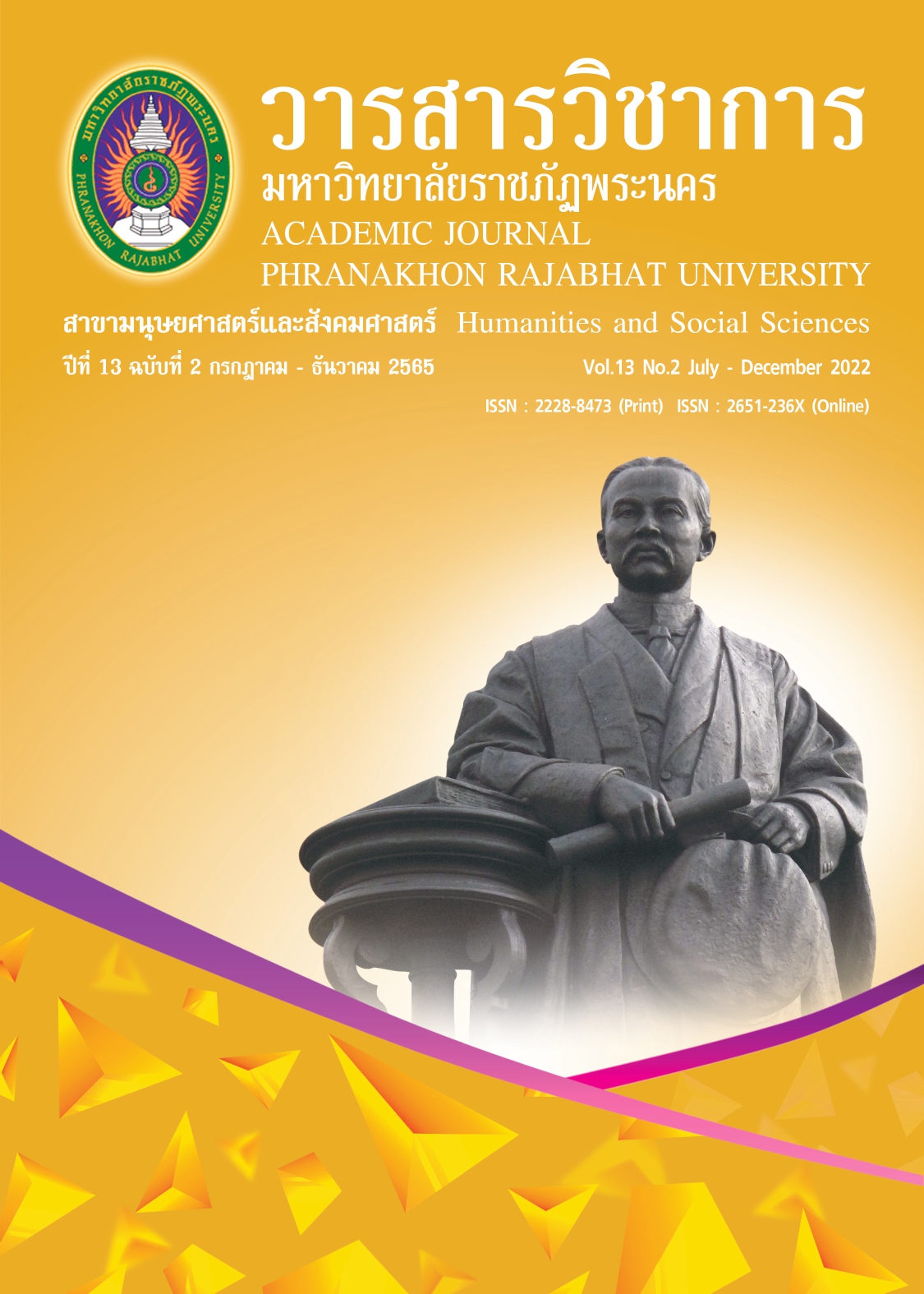THE APPLICATION OF WEIBO MEDIA FOR ENGLISH VOCABULARY LEARNING OF GRADE 7 CHINESE STUDENTS IN HUBEI PROVINCE, CHINA
Keywords:
Weibo Media, English vocabulary Skill, Learning Achievement, Students’ SatisfactionAbstract
This quasi-experimental study investigated whether the application of Weibo media improved Grade 7 Chinese students’ English vocabulary skill and their satisfaction in learning English vocabulary. The sample group consisted of 30 Chinese students studying in Grade 7 in Hubei Province, China. The data were collected using pretest and posttest as well as questionnaire, and analyzed using descriptive statistics analysis and paired-sample t-test.
The results obtained from the pretest and posttest revealed that the students in a sample group significantly improved their English vocabulary skill with the posttest mean score of 20.53 and SD of 4.13 and the pretest mean score of 13.57 and SD=4.55, resulting in the mean difference of 6.96 points. The questionnaire data showed that all items were rated in (at) a high level and most students expressed positive satisfaction towards the application of Weibo media in learning English vocabulary skill. Thus, the application of Weibo media may be considered as an effective option in learning English vocabulary skill in China.
References
Bruner, J. S. (1965). The growth of mind. American Psychologist, 20(12), 1007–1017. https://doi.org/10.1037/h0023276.
Che, L. (2011). English teaching in the age of Weibo. Hehe Journal, 12(2), 1–6.
Chen, H. Y. (2020). Exploring the Application of Associative Teaching Method in Middle School English Teaching. English Picture Journal (Advanced Edition), 2(6), 4–9.
Cooper, B., & Glaesser, J. (2012). Qualitative Work and the Testing and Development of Theory: Lessons from a Study Combining Cross-Case and Within-Case Analysis via Ragin’s QCA. Forum Qualitative Sozialforschung / Forum: Qualitative Social Research, 13(2). doi: 10.17169/fqs-13.2.1776
Edmunds, C. K. (1919). Modern Education in China. The Journal of International Relations, 10(1), 62–86. https://doi.org/10.2307/29738327
Hou, Y. (2017).Weibo Teaching in English Writing Based on New Media. Journal of Heihe University, 02(01), 151–153.
Lee, C. H., & Sun, T. L. (2018). Evaluation of postural stability. Journal of physiological anthropology, 37(1), 1–16.
Liu. (2014). A study on college English teaching strategies based on Weibo platform. China Out-of-School Education, S3(2), 5–7, https://doi.org/CNKI:SUN:XWLL.0.2014-S3-475
Ma, L. (2005). The new English curriculum standard calling for teaching methods that are suitable for Chinese students. Journal of Beijing Institute of Education, 8(10), 103–106.
Qian, X. (2009). Paying attention to each teaching link to stimulate students’ interest in learning. China after School Education, 5(2), 1–7. doi: CNKI:SUN:XWLL.0.2009-05-059
Su, Y. (2021). A study of high school English vocabulary and teaching in the context of self-media. Campus English, 001(003), 2–3.
Tian, T. (2018). Talk about the allocation of classroom time - Baidu Library. Retrieved October 3, 2022, from wenku.baidu.com website: https://wenku.baidu.com/view/553fa6e3e53a580216fcfe80?aggId=553fa6e3e53a580216fcfe80&fr=catalogMain
Wang, S. (2010). "Microwave oven" heating education--an analysis of the application of weibo media in education. Modern Educational Technology, 20(8), 95–97.
Wang, Y., & Chiew, V. (2010). On the cognitive process of human problem solving. Cognitive Systems Research, 11(1), 81–92. https://doi.org/10.1016/j.cogsys.2008.08.003
Wu, X. (2006). A test of constructivist theory on English language teaching. Foreign Languages and Their Teaching, 6(2), 33–35.
Yin, J. (2011). A study of high school English vocabulary learning strategies under the new curriculum. Journal of Xuzhou Normal University: Education Science Edition, 3(2), 70–72.
Yu, G. M. (2011). Weibo: An examination of a new communication form: Influence models and social applications. People’s Daily Press, 3(6), 4–6.
Yu, Y. (2013). An introduction to the application of weibo in education. Science Education Guide: Electronic Edition, 000(002), 11–12.
Zhang, Y. (2014). Feasibility study of Weibo for teaching and learning. Electronic Production, 14(2), 2–2. doi: 10.3969/j.issn.1006-5059.2014.14.064
Zhang,T., Zhang, K., & Yang, X. (2013). Study on teaching of English words based on Weibo. Software Guide. Educational Technology, 12(5), 41–42.
Zhou, P. (2014). Application of multimedia in teaching English vocabulary in junior high school. Changjiang University Journal, 3(9), 8–9. doi: CNKI:CDMD:2.1014.351327
Zhu, X. (2016). The application of Weibo in junior high school English learning. English Pictorial: Advanced, 13(1),12–13.
Downloads
Published
How to Cite
Issue
Section
License
Copyright (c) 2022 Academic Journal Phranakhon Rajabhat University

This work is licensed under a Creative Commons Attribution-NonCommercial-NoDerivatives 4.0 International License.
"บทความวิชาการในวารสารฉบับนี้ ถือเป็นความรับผิดชอบของผู้เขียนเท่านั้น"
สงวนลิขสิทธิ์ตามพระราชบัญญัติลิขสิทธิ์




